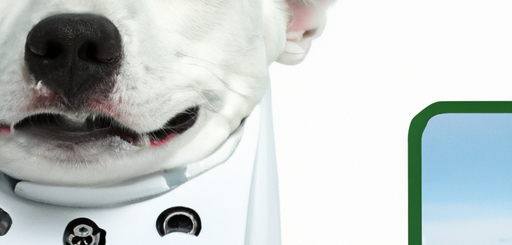Creating A Balanced Dog Diet: Nutritional Guidelines And Meal Planning
In this article, you will learn about how to make sure your dog has a balanced diet. It’s important to feed your furry friend the right foods so they can be healthy and happy. We will talk about some guidelines for what to include in their meals and how to plan them out. Whether you have a small puppy or a big scary dog, these tips will help you make sure they are getting all the nutrition they need. So let’s get started on creating a balanced dog diet!
Choosing the Right Dog Food
When it comes to choosing the right dog food for your furry friend, it’s important to understand their nutritional needs. Dogs require a well-balanced diet to stay healthy and active. By providing them with the right nutrients, you can ensure they have the energy they need and maintain overall well-being. In order to make an informed choice, it’s crucial to read and understand dog food labels and identify high-quality ingredients.
Understanding Your Dog’s Nutritional Needs
Before diving into the world of dog food, it’s essential to understand your dog’s nutritional needs. Dogs require a balanced diet that includes protein, fats, carbohydrates, vitamins, minerals, and water. Each of these nutrients plays a vital role in supporting their overall health and well-being. By understanding these needs, you can better assess the quality and suitability of various dog food options.
Reading Dog Food Labels
Dog food labels are an essential tool for understanding what goes into the food you are considering for your pet. The labels provide information about the ingredients, guaranteed analysis, feeding guidelines, and any specific claims the product may have. It’s important to read and understand these labels to make an informed decision about which dog food is best for your pet. Look for transparency in ingredients, without any artificial additives or preservatives.
Identifying High-Quality Ingredients
When it comes to prioritizing the nutritional needs of your dog, you must look for high-quality ingredients in their food. As a rule of thumb, the first ingredient listed should be a quality source of protein. Ingredients like chicken, beef, or fish are excellent sources of protein. Avoid dog food that contains fillers and by-products, as these can be harmful to your dog’s health. The more wholesome and natural the ingredients are, the better it is for your four-legged friend.
Protein: The Foundation of a Dog’s Diet
Protein is a crucial component of a dog’s diet as it provides the building blocks for strong muscles and supports overall growth and development. It also helps with the functioning of enzymes, hormones, and antibodies in the body. Choosing the right protein sources and ensuring the right amount is included in your dog’s diet is essential for their health.
The Importance of Protein in a Dog’s Diet
Protein is essential for dogs because it provides them with essential amino acids. Amino acids are the building blocks of proteins and are necessary for the growth, repair, and maintenance of the body’s tissues. Without an adequate amount of protein in their diet, dogs may become weak, have slow growth, and suffer from a weakened immune system.
Choosing the Right Protein Sources
When selecting the right protein sources for your dog’s diet, it’s important to consider their individual needs. Different breeds and sizes may require different types of protein. Some common protein sources include chicken, beef, fish, and lamb. It’s essential to choose high-quality protein sources without any artificial additives or fillers. Consult with your veterinarian to determine the best protein sources for your furry friend.
Calculating the Right Amount of Protein
The amount of protein your dog needs depends on various factors, such as their age, size, activity level, and overall health. It’s important to consult with your veterinarian to determine the appropriate amount of protein for your dog. Generally, adult dogs need a minimum of 18-20% protein in their diet, while puppies and active dogs may require higher levels. It’s crucial to strike a balance and ensure your dog doesn’t consume excessive amounts of protein, as that can lead to health issues.

This image is property of images.unsplash.com.
Fats: Essential for Optimal Health
Fats are an essential part of a dog’s diet as they provide energy, promote healthy skin and coat, and support various bodily functions. Choosing the right sources of fat and understanding the proper fat intake are key in maintaining your dog’s optimal health.
The Role of Fats in a Dog’s Diet
Fats play a crucial role in a dog’s diet. They provide a concentrated source of energy, help absorb fat-soluble vitamins, and maintain healthy skin and coat. Fats are also necessary for the optimal functioning of the nervous system. Without an adequate amount of fat in their diet, dogs may experience fatigue, dry skin, and a weakened immune system.
Healthy Sources of Fats
When it comes to choosing healthy sources of fats for your dog, opt for those that are rich in omega-3 and omega-6 fatty acids. These essential fatty acids help reduce inflammation, support brain development, and maintain a healthy immune system. Good sources of healthy fats include fish oil, flaxseed oil, and chicken fat. Avoid sources of unhealthy fats, such as excessive animal fat or oils high in saturated fats.
Determining the Proper Fat Intake
The appropriate fat intake for your dog depends on their age, breed, activity level, and overall health. Generally, fat should make up approximately 10-15% of your dog’s diet. However, puppies may require more fat in their diet to support their growth and development. It’s important to consult with your veterinarian to determine the right amount of fat for your furry friend.
Carbohydrates: Providing Energy and Fiber
Carbohydrates are an important source of energy for dogs and also provide dietary fiber, which aids in digestion and bowel regularity. Understanding the role of carbohydrates, selecting nutritious sources, and finding the right balance is crucial for maintaining your dog’s overall health.
Understanding the Role of Carbohydrates
Carbohydrates are the primary source of energy for dogs. They provide the fuel necessary for physical activity, brain function, and maintaining an optimal metabolic rate. Carbohydrates also play a role in promoting healthy digestion and providing dietary fiber, which aids in maintaining a healthy weight and prevents digestive issues.
Selecting Nutritious Carbohydrate Sources
When it comes to selecting nutritious carbohydrate sources for your dog’s diet, it’s important to choose complex carbohydrates rather than simple sugars. Complex carbohydrates, such as sweet potatoes, brown rice, and quinoa, provide a slower release of energy and are more beneficial for your dog’s overall health. Avoid carbohydrates that contain excessive amounts of sugar or artificial ingredients.
Finding the Right Balance
Finding the right balance of carbohydrates in your dog’s diet is crucial in ensuring their overall well-being. While carbohydrates are an important energy source, excessive intake can lead to weight gain and potential health issues. Work with your veterinarian to determine the appropriate amount of carbohydrates for your dog’s specific needs.

This image is property of images.unsplash.com.
Vitamins and Minerals: Vital for Overall Health
Vitamins and minerals are essential for dogs to maintain overall health and well-being. These nutrients play a crucial role in various bodily functions, including immune system support, bone health, and proper digestion. Meeting your dog’s vitamin and mineral requirements is important for their overall health.
Essential Vitamins for Dogs
Dogs require various vitamins for optimal health. Vitamin A is vital for eye health and a healthy coat. Vitamin D supports calcium absorption and bone health. Vitamin E is an antioxidant that helps protect cells from damage. Vitamin C is important for a strong immune system. B vitamins are essential for energy production. Providing a balanced diet with high-quality ingredients will help ensure your dog receives the necessary vitamins.
Important Minerals for Dogs
Minerals play a crucial role in supporting numerous physiological processes in dogs. Calcium and phosphorus are essential for strong bones and teeth. Iron carries oxygen in the blood. Zinc promotes a healthy immune system and aids in wound healing. Copper supports iron absorption and connective tissue formation. By providing a balanced diet with a variety of nutrient-rich ingredients, you can help meet your dog’s mineral requirements.
Meeting Vitamin and Mineral Requirements
Meeting your dog’s vitamin and mineral requirements can be achieved through a balanced diet that includes a variety of nutritious ingredients. By ensuring your dog receives a well-rounded and high-quality food, you can help provide them with the necessary vitamins and minerals they need to thrive. It’s important to avoid relying solely on supplements unless recommended by a veterinarian.
Avoiding Common Allergens and Fillers
When choosing dog food, it’s crucial to be aware of potential allergens and fillers that can negatively impact your pet’s health. Identifying potential allergens, avoiding common fillers, and opting for hypoallergenic options if needed can help ensure the well-being of your furry friend.
Identifying Potential Allergens
Some dogs may have specific food allergies or sensitivities. Common allergens for dogs include beef, dairy, wheat, soy, and chicken. If your dog exhibits signs of allergies such as itching, gastrointestinal issues, or skin problems, it’s important to identify the potential allergens in their diet and make appropriate adjustments.
Common Fillers to Avoid
Fillers are ingredients that lack nutritional value and are often added to dog food to bulk it up or reduce costs. Common fillers include corn, wheat, soy, and artificial additives. These fillers can be difficult for dogs to digest and may contribute to allergies or gastrointestinal issues. Opting for dog food that is free from fillers is important in ensuring your dog receives the necessary nutrients without any unnecessary additives.
Choosing Hypoallergenic Options
If your dog has allergies or sensitivities, choosing hypoallergenic dog food may be necessary. Hypoallergenic options are specifically formulated to minimize the risk of triggering allergies. These foods often contain novel protein sources, such as venison or duck, and alternative carbohydrate sources like sweet potatoes or peas. Consulting with your veterinarian can help determine if hypoallergenic options are the right choice for your dog.

This image is property of images.unsplash.com.
Meal Planning for a Balanced Diet
Meal planning is an important aspect of providing a balanced diet for your dog. Determining portion sizes, feeding frequency and schedule, and incorporating variety in meals can help ensure your furry friend receives all the necessary nutrients in the right amounts.
Determining Portion Sizes
Determining the appropriate portion sizes for your dog’s meals is crucial in maintaining a healthy weight and preventing overfeeding or underfeeding. Factors such as age, size, activity level, and metabolism can influence portion sizes. Your veterinarian can provide guidance on the appropriate portion sizes for your dog based on their individual needs.
Feeding Frequency and Schedule
Establishing a feeding schedule is important to maintain regularity and ensure your dog receives their meals at consistent times each day. Puppies typically require more frequent meals compared to adult dogs. Adult dogs usually do well with two meals a day, while senior dogs may benefit from smaller, more frequent meals. Consistency is key in establishing a routine that works best for your dog.
Incorporating Variety in Meals
Incorporating variety in your dog’s meals can help ensure they receive a wide range of nutrients. Rotating protein sources, including both animal and plant-based options, can provide different amino acids necessary for their health. Adding fruits and vegetables as occasional treats or supplements can also contribute to a well-rounded diet. However, it’s important to introduce new ingredients gradually to monitor for any adverse reactions.
Special Dietary Considerations
Different life stages and specific medical conditions may require special dietary considerations for your dog. Senior dogs, puppies, and those with medical conditions have unique nutritional needs that should be taken into account to ensure their health and well-being.
Senior Dogs
As dogs age, their nutritional needs change. Senior dogs may have decreased activity levels, reduced metabolism, and specific health conditions that require modifications to their diet. Providing a senior-specific dog food that is formulated to support joint health, digestion, and cognitive function can help meet these changing needs.
Puppies and Growing Dogs
Puppies and growing dogs have higher energy and nutrient requirements to support their rapid growth and development. It’s important to provide them with a high-quality puppy food that is specifically formulated to meet their needs. Ensuring an appropriate balance of protein, fat, vitamins, and minerals is crucial during this crucial stage of their life.
Dogs with Medical Conditions
Dogs with specific medical conditions, such as kidney disease, diabetes, or food allergies, may require a special diet to manage their condition. These diets are typically prescribed by veterinarians and are tailored to meet the unique needs of each dog. It’s important to follow the recommended dietary guidelines and work closely with your veterinarian to ensure your dog’s health is properly managed.

Supplements: Enhancing Nutritional Intake
While a balanced diet should provide all the necessary nutrients for your dog, there may be instances where supplements can help enhance their nutritional intake. Understanding the use of supplements, common supplements for dogs, and consulting with a veterinarian are key in determining if supplements are necessary and appropriate for your pet.
Understanding the Use of Supplements
Supplements are additional nutrients or additives that can be provided alongside a dog’s regular diet. They can help address specific nutritional deficiencies, support joint health, promote healthy skin and coat, and aid in various other aspects of overall health. However, it’s important to note that supplements should not replace a balanced diet and should only be used under the guidance of a veterinarian.
Common Supplements for Dogs
Some common supplements for dogs include omega-3 fatty acids, joint support supplements (such as glucosamine and chondroitin), and probiotics. Omega-3 fatty acids help with skin and coat health, joint support supplements assist with mobility and joint health, and probiotics can promote a healthy gut. Before adding any supplements to your dog’s diet, it’s important to consult with your veterinarian to ensure they are necessary and safe.
Consulting with a Veterinarian
Before adding any supplements to your dog’s diet or making any significant changes, it’s crucial to consult with a veterinarian. They can assess your dog’s specific needs, recommend appropriate supplements if necessary, and provide guidance on incorporating them into their diet. Veterinarians have the expertise to determine what is best for your dog’s individual health and nutritional requirements.
Monitoring and Adjusting the Diet
After establishing a balanced diet for your dog, it’s important to monitor their body condition and overall health regularly. Observing your dog’s body condition, checking for signs of nutritional imbalances, and consulting with a professional can help ensure their diet remains optimal for their well-being.
Observing Your Dog’s Body Condition
Regularly observing your dog’s body condition can help determine if their diet is appropriate. You should be able to feel their ribs without seeing them, and they should have a visible waist when viewed from above. If your dog is becoming overweight or underweight, it may be necessary to adjust their portion sizes or the composition of their meals.
Checking for Signs of Nutritional Imbalances
Keeping an eye out for signs of nutritional imbalances is crucial in ensuring your dog’s overall health. Common signs of nutritional imbalances can include changes in energy levels, skin issues, dull coat, gastrointestinal problems, and excessive weight gain or weight loss. If you notice any of these signs, it’s important to consult with a professional to assess your dog’s diet and make appropriate adjustments.
Consulting with a Professional
If you have any concerns about your dog’s diet or suspect nutritional imbalances, it’s important to consult with a professional. Your veterinarian can assess your dog’s overall health, review their diet, and make recommendations for adjustments if necessary. They can also provide guidance on any specific dietary considerations based on your dog’s individual needs.
By understanding your dog’s nutritional needs, reading dog food labels, identifying high-quality ingredients, and providing a balanced diet, you can ensure your furry friend stays healthy and happy. Consulting with your veterinarian, monitoring their body condition, and making adjustments as needed will help maintain their optimal well-being. Remember, a well-nourished dog is a happy dog!










